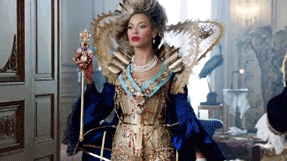A take on sexual liberation through the experience of a young black woman
To be sex positive means to embrace your sexuality and sexual expression. “Sex positivity” is a new term to me because it didn’t really exist in my world until recently. As a young black girl growing up in DC, I was taught not to be promiscuous, easy, or “fresh.” I didn’t realize that those lessons essentially translated to internalized sexism and misogyny until I went to college. My male cousins were praised for exploring their sexuality, while my female cousins and I were armed with horror stories about men and their sexual conquests.
In school, I remember being called a “good girl” or a “prude” because I was not as sexually liberated as some of peers. Some days, I’d be celebrated for that; other days, I’d be shunned for it. Growing up, I noticed that a lot of black girls were told similar things and felt a similar way. It was a very confusing time—everyone had an opinion on sex and how it related to me, so much so that I couldn’t figure out how I truly felt about it for myself.
It was winter break during my freshman year in college that I was able to put things into perspective in regard to black women and sex. Beyoncé dropped her self-titled album and literally everything stopped and went quiet—then, immediately afterward, there was so much noise. There were so many opinions about the album—not just because it was Beyoncé and she dropped an album unexpectedly, but because of how sexually liberated her new music was. Some critics thought she had no right to express herself in that way, while others thought she should’ve done it sooner.

All of a sudden, I felt like I was in my living room again, with my older female relatives giving me their opinion on sex and how I should feel about it. I was in my high school cafeteria again, with classmates giving me their opinion on sex and how I should feel about it. In that moment, I realized that my experience wasn’t an isolated one. If Beyoncé—a strong, successful, grown black woman—couldn’t talk about her love of sex freely without unwarranted opinions, then who could?
While I wouldn’t consider myself a superfan of Beyoncé, I am a fan of what that album meant to black women in general and to me personally. There is a lot of talk about sex positivity and what it really means for different people. For me, I think it gives me the permission I never actually needed to express, explore, and enjoy my sexuality—if I so choose.
Inspired to share your story but want or need to remain anonymous? We are happy to post anonymous contributions and will use one of our “+ BEING” tags as the byline.


